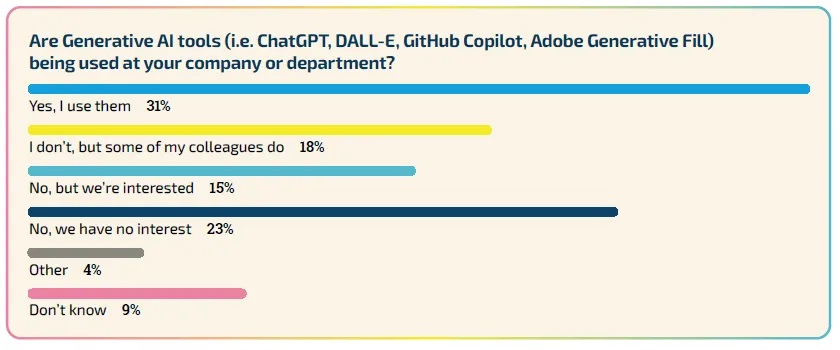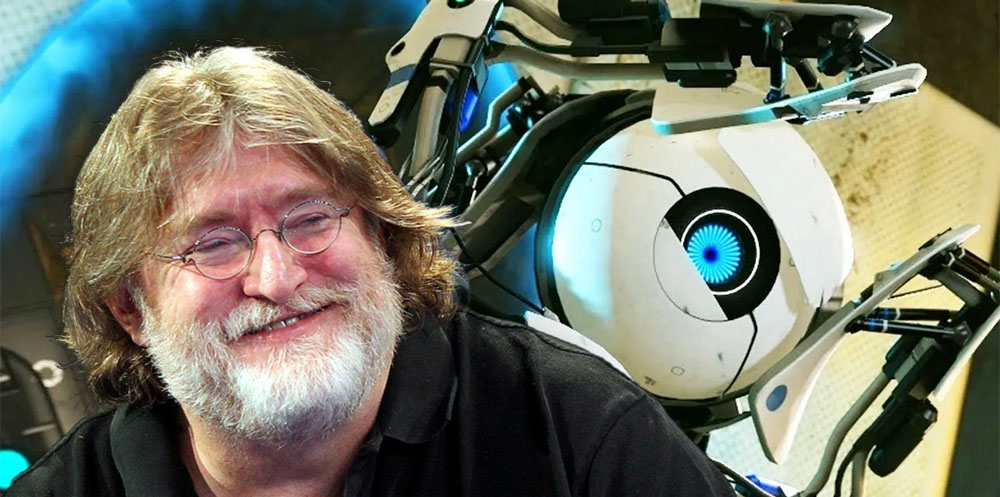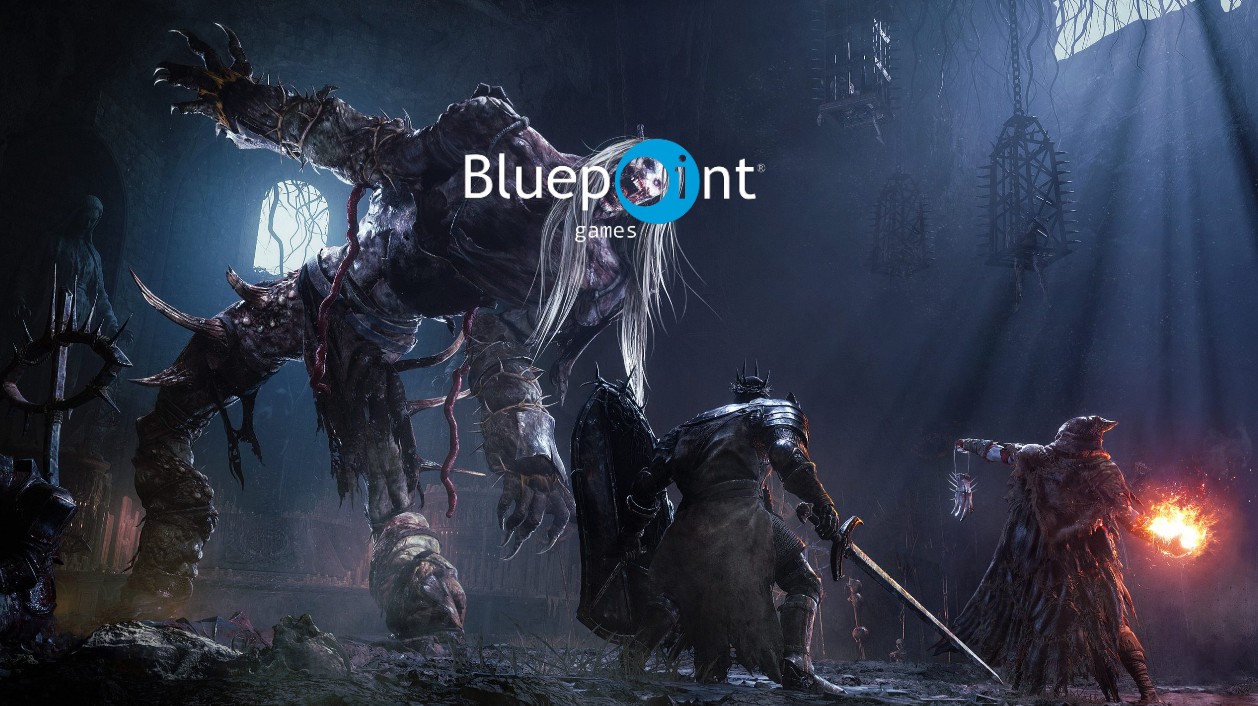- AI has been evolving at a brisk speed, threatening the jobs of game creators.
- A recent survey has revealed that over 30% of developers use generative AI.
- It also revealed that 18% of the developers don’t use it, but their colleagues do.
AI has become a controversial topic ever since its influence started to rise. Many developers, voice actors, and designers have feared AI taking over their jobs, causing strikes from SAG-AFTRA in the past.
It was believed that developers would be reluctant to implement this technology in games, but a recent survey has pointed out that over 30% of game developers are relying on generative AI already.
Why it matters: Artificial intelligence is becoming deeply rooted in all parts of technology. However, with the increasingly strenuous process of creating AAA games, it could become a basic component of future development.

A survey of over 3000 game developers from the organizers of the Game Developers Conference revealed that a large percentage of participants already use generative AI.
18% of the 3000 said they don’t use AI at all, but their colleagues do. A small 23% stated that they did not have any interest in the technology, while 15% claimed to be interested in future use.
Therefore, nearly 50% of the participants are not opposed to generative AI for game development, highlighting the trajectory of the industry. Studios have begun to utilize artificial intelligence for tasks like writing, programming, and more.
Steam has also reverted its AI policy and now allows games using this technology on the platform as long as teams inform Valve about this type of content beforehand. Ultimately, artificial intelligence is growing at an unprecedented rate.
Despite its many benefits, the technology remains a point of contention in the industry. With 2700 layoffs already confirmed this year, the increasing dependency on artificial intelligence poses somewhat of a threat to professionals like voice actors.
Recent games like The Finals have also shown the use of AI-generated voice lines. Elsewhere, Square Enix has confirmed intentions to experiment with the technology for game development moving forward.
All of this has led to uncertainty and doubts from industry professionals, with many believing that their jobs are threatened by this technology.
If there’s anything this survey proves, it’s the fact that artificial intelligence will inevitably take over the gaming industry. When that will happen is still up for debate, but 2024 could mark the beginning of greater artificial intelligence impacts on gaming.
Thank you! Please share your positive feedback. 🔋
How could we improve this post? Please Help us. 😔
[News Editor]
Obaid is pursuing a Law degree while working as a content writer. He has worked as a gaming writer for over three years because of his passion for the medium and reporting the latest updates in the industry. Having played hundreds of games, Obaid finds himself coming back to Elden Ring, Cyberpunk 2077, and Red Dead Redemption 2, with these games being among his favorites. He has also been mentioned on highly regarded websites, such as Wccftech, Metro UK, PS Lifestyle, GamePressure, VGC, and Gamespot.





